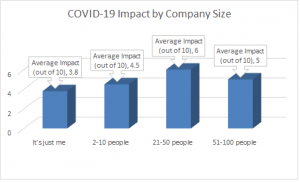Ecommerce Accounting: A Beginners Guide for 2024
Ecommerce Accounting: A Beginners Guide for 2024
: :03-02-22, 4:35 sáng |
| Ecommerce Accounting: A Beginners Guide for 2024 |
|---|
This makes the potential for financial transactions almost limitless. Using the same scenario as above, under LIFO, the 50 units sold would be valued at $12 each, representing the cost of the most recent inventory purchase. Implementing dynamic shipping https://www.bookstime.com/articles/debt-to-asset-ratio rates or surcharges for large packages (and other strategies) can help manage shipping costs effectively. A lack of refund on fees can result in financial loss, and reconciling transactions across platforms requires careful attention to detail.
Basics of Ecommerce Bookkeeping
Before you go online and start searching for ecommerce companies to help you with every step of the accounting and bookkeeping list, try to understand what each concept entails. Like any business, managing an ecommerce company comes with considerable expenses. You can plan and collect some of them, like shipping costs or cybersecurity protection. But you may also need to deal with refunds, delays, inflation, and much more. If you’re just starting a bookkeeping business, it’s likely that you’ll just be working solo, at least for the beginning. Consider starting your search into business entities for bookkeepers by looking into sole proprietors and LLCs.
How should an ecommerce business organize its chart of accounts?Accounts receivable duties are tasks that were done by hand in the past. Today, many ecommerce accounting software programs include helpful accounts receivable functions. Accounting and bookkeeping duties involve tracking purchases and inventory every step of the way. You need to know how much inventory you sell and what’s left in stock. This way, you know your sales are accounted for and also know when it’s time to order more products. Accounting and bookkeeping are different concepts, but both equally as important for keeping track of your business. What’s The Difference Between Accounting And Bookkeeping?Merchant fees help platforms provide hosting, payment processing, and marketing tools, but handling them can be complex. Professional bookkeepers offer expertise, time savings, and accuracy in financial reporting. Owners can find one through research, referrals, and freelancer ecommerce bookkeeping platforms. Furthermore, virtual assistance agencies often have established processes and procedures in place, ensuring that your bookkeeping tasks are performed efficiently and accurately. It brings cost-effectiveness, as you only pay for the services you require.
As an owner of an e-commerce business, organizing your finances is a major factor in the success and growth of your venture. With your books, receive monthly analysis on your reports so you can know your numbers better and make smarter business decisions. Few industries are as vulnerable to financial risks as ecommerce, where losses due to fraudulent transactions alone… The accountant uses the results that the bookkeeper provides to summarize, analyze, and report on the company’s finances. Cash accounting is a method of accounting that measures the transfer of cash. After reviewing the topics above, you might find that you can easily accomplish one or more of these goals on your own. Signs It’s Time to Invest in Professional…Master ecommerce bookkeeping with our comprehensive step-by-step guide. Learn how to handle sales tax, inventory, payments, financial statements, and more. Every small business owner must deal with tax planning, accrual accounting, and keeping track of cash flow. But ecommerce companies must also manage inventory, multiple sales channels, and sales taxes. Staying updated on tax regulations and compliance requirements is essential for ecommerce businesses to avoid penalties and fines. How Bookkeeping For eCommerce Is Different Than Traditional BookkeepingAccurate bookkeeping is a baseline requirement for all business planning and operations. This includes tracking and categorizing income and expenses, inventory management, and reviewing balance sheets. The break even point, or BEP, is when the company’s revenues and expenses are equal during a particular accounting period. Ecommerce businesses should calculate the BEP to know the minimum for the production expenses.
Use a Bookkeeping App |
| Back to list |



 02-0000-0000
02-0000-0000 02-0000-0000
02-0000-0000 0ddd@dddd.com
0ddd@dddd.com

